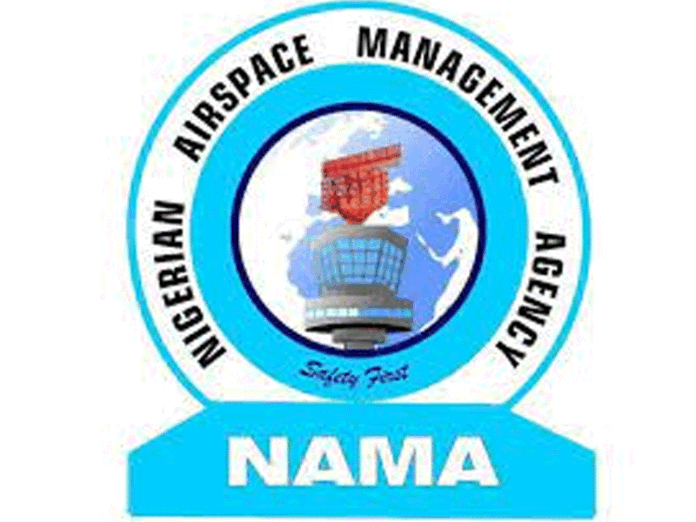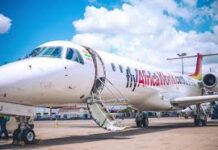NAMA MD Appeals for Reversal of 50% IGR Deduction in the Interest of Air Safety
Chigozie Amadi
The Managing Director of the Nigerian Airspace Management Agency (NAMA), Engr. Farouk Ahmed Umar, is urgently appealing for the reversal of the 50% deduction from the agency’s Internally Generated Revenue (IGR) in the interest of air travel safety as there is no parking space on the sky.
Speaking at the agency’s headquarters in Abuja, Engr. Farouk emphasized that NAMA as the heart of the Aviation industry is tasked with the critical responsibility of ensuring the safe conduct of flights within Nigeria’s airspace, including the Gulf of Guinea. To fulfil this mandate, NAMA maintains advanced safety-critical equipment and recruits and trains personnel to meet national and international safety standards as outlined by the International Civil Aviation Organization (ICAO). Despite these efforts, NAMA faces significant financial constraints due to the implementation of the 50% revenue deduction, which has severely impacted the agency’s revenue, cutting it by more than half at a time when the need for infrastructural and personnel development is growing.
“The safety of our airspace is paramount, and the current financial model is unsustainable. The 50% revenue deduction hinders our ability to maintain and upgrade critical infrastructure, such as our obsolete surveillance systems, which are over a decade old and urgently need replacement,” stated Engr. Farouk. “Without adequate funding, we can not meet the high costs of procuring and maintaining essential equipment or ensuring the continuous training of our technical staff, which is vital for maintaining safety standards. It is crucial to understand that NAMA operates on the principle of cost recovery, as recommended by ICAO. This means all charges are solely meant to recover the costs incurred in service provision.”
Engr. Farouk further noted, “The current practice and net estimate of Internally Generated Revenue (IGR) are insufficient to cover the recurrent and capital expenditures of the Nigerian Airspace Management Agency (NAMA). This shortfall poses a significant risk to air safety. According to global best practices, air navigation service providers (ANSPs) should operate solely on a cost-recovery basis. In the interest of safety, ANSPs worldwide are designed to be safety-focused organizations rather than profit-oriented ventures.”
Engr. Farouk also highlighted that the current revenue-sharing formula is skewed against NAMA. Despite its extensive responsibilities, NAMA receives only 22% of the revenue, while the Nigeria Civil Aviation Authority (NCAA), with fewer responsibilities, is allocated 56%. “This formula is unfair to NAMA, given the substantial capital requirements of our investments, jeopardizing our ability to meet both national and international obligations,” he added.
Restoring the full revenue allocation to NAMA is essential. Doing so will enable the agency to address critical infrastructural needs, enhance operational efficiency, and ensure the continuous training of safety-critical personnel. With adequate funding, NAMA can fulfil its mandate to provide safe and reliable air navigation services across Nigeria’s airspace.
“Reversing the 50% revenue deduction is the only way NAMA can significantly enhance air safety, ensuring that Nigeria’s skies remain safe and maintain high safety standards. I urge all stakeholders to support this necessary change for the future of our aviation sector and the safety of the flying public,” concluded Engr. Farouk.
The implications of the foregoing are significant, as they suggest that the entire budget will be operating at a deficit, in direct contradiction to the financial regulations and existing rules outlined in the Fiscal Responsibility Act of the federal Republic of Nigeria.
























